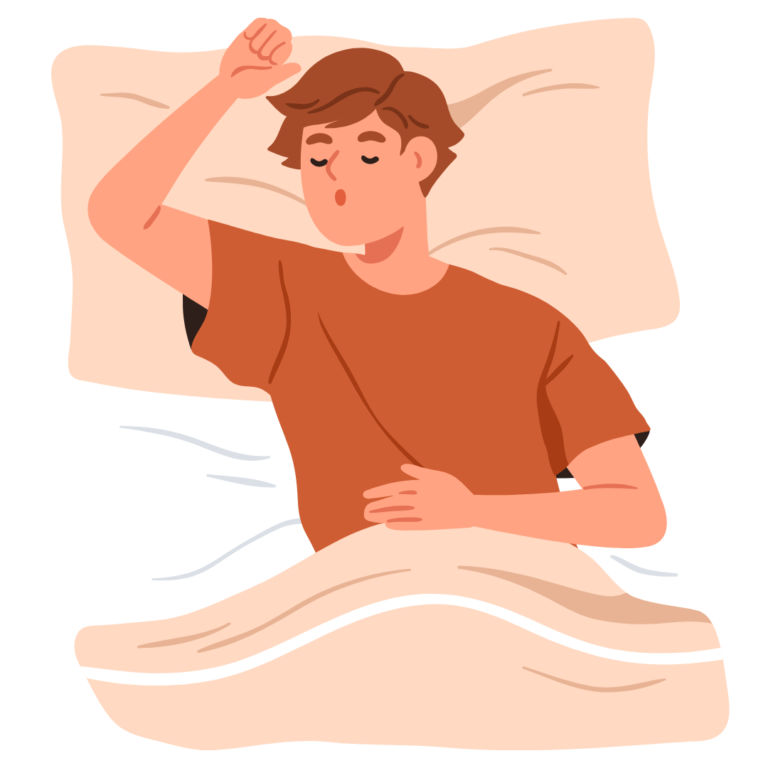If you were to go into your phone and check how many hours of sleep you get on average, what would it say? Are you getting your full 9 hours? Sleep is often overlooked in today’s fast-paced world, especially by teenagers balancing school, social life, and extracurricular activities. However, sleep is crucial for mental and physical health. This article will focus on the reasons sleep is so important to teenagers, the negative impact of being deprived of it, and practical ways of enhancing sleep habits to ensure improved mental health and general well-being.
The Science of Sleep
Within the first minute of falling asleep, our bodies undergo changes that impact our brain and body. Sleep is a complex process consisting of several stages that individuals progress through during a night’s sleep. These stages include REM (Rapid Eye Movement) and non-REM sleep. According to the Sleep Foundation, It is believed that the brain needs the REM sleep state to perform vital processes like memory and learning. The circadian rhythm, an internal body clock, regulates sleep-wake cycles, influencing when we feel awake and when we feel sleepy. During adolescence, the circadian rhythm shifts, making it natural for teens to stay up late and wake up later. Understanding these changes is key to addressing sleep issues.
Benefits of Quality Sleep for Teens
Quality sleep is important in teens for numerous reasons. To begin with, sleep is how our bodies repair themselves. Sleeping helps prevent infections, rebuild muscles, and improve brain function, which enhances focus, prevents mood problems, and supports overall bodily functions (Why Sleep Is Important for Teens). It also decreases your risk of health problems. Not getting enough sleep can cause you to struggle in school as it’ll affect your memory, concentration, and your motivation. Sleeping also helps reduce anxiety and depression by stabilizing mood and emotional responses. Teens who sleep well are better equipped to handle stress and challenges.
Common Sleep Disruptors for Teens
Several factors interfere with the sleeping patterns of teenagers. Technology use can expose teens to blue light, which studies have shown has a direct link to melatonin suppression, a hormone vital in sleep initiation. Social media and gaming can delay sleep as teens engage in stimulating activities before bed. Academic and societal pressures, such as homework and extracurricular activities, also push bedtimes later. Finally, if there is no pattern—irregular bedtimes and the throwing off of the sleep schedule for weekends—the body’s internal clock will be disturbed.
Tips for Improving Sleep Hygiene
- Establish a Relaxing Bedtime Routine: Engage in calming activities before bed to signal your body that it’s time to wind down.
- Create a Sleep-Friendly Environment: Ensure your room is cool, dark, and quiet at bedtime.
- Weekend Wake Times: On weekends, try to get up within 2 to 4 hours of your usual wake time, even if you go to bed late. This helps prevent difficulties falling asleep on Sunday nights.
- Consistent Sleep Duration: Aim to be in bed with the lights out for at least 8 hours each night. Many teens need 9 to 10 hours to avoid daytime sleepiness.
- Regular Bedtime: Try to go to bed at the same time every night.
- Morning Light Exposure: Open the curtains or turn on the lights as soon as you wakeup to help regulate your body clock.
- Daily Exercise: Get exercise every day but avoid very strenuous exercise in theevening.
- Manage Your Schedule: Ensure you are not overscheduled. Leave time for fun andadequate sleep.
- Avoid Caffeine After Mid-Afternoon: Steer clear of coffee, tea, and colas later in theday as they can disrupt sleep. It is a stimulant that can keep you awake. Caffeine cantake 6–8 hours to wear off completely.
10. Limit Naps: Avoid napping during the day. If necessary, keep naps under 30 minutes,
and do not nap after dinner.
11. Use Your Bed for Sleep Only: Avoid doing homework in your bed
12. Avoid Sleep Aids: Do not use alcohol, herbal products, or over-the-counter sleep aids
to help you sleep.
13. Stick to a Sleep Schedule: Maintain the same sleep and wake times every day, even
on weekends.
14. Get Daily Sunlight: Spend at least 30 minutes outside in natural sunlight each day. 15. Avoid Large Meals Before Bed: It can prevent deep, restorative sleep.
16. Limit Electronics Before Bed: Try reading a book, listening to soothing music, or
another relaxing activity instead. 17. Get Up If You Can’t Sleep:
○ If you can’t fall asleep after 20 minutes, get up and do a relaxing activity until you feel sleepy again.
18. Seek Professional Help:
○ If you’ve tried everything and still can’t sleep, see your healthcare provider. They
can determine if you need further testing and help you learn new ways to manage stress.
Conclusion
Quality sleep is vital for mental, cognitive, and physical health. Prioritizing sleep can transform a teen’s life, enhancing their overall well-being. Encouraging teens to implement the tips provided can lead to better sleep and improved health.
Written By: Amari Bell, Mental H2O Youth Resource Writer
References
Why Sleep Is Important for Teens. www.hopkinsmedicine.org/all-childrens-hospital/services/pediatric-and-adolescent-medic ine/healthy-weight-initiative/ages-12-17/why-sleep-is-important-for-teens#:~:text=Sleep% 20is%20important%20for%20teens%20because%20it%20is%20how%20our,helps%20o ur%20bodies%20function%20better.


